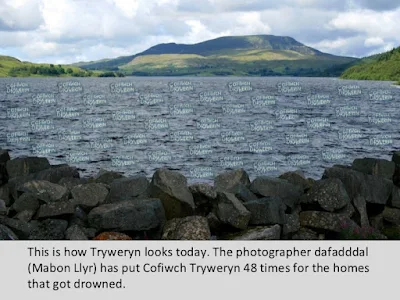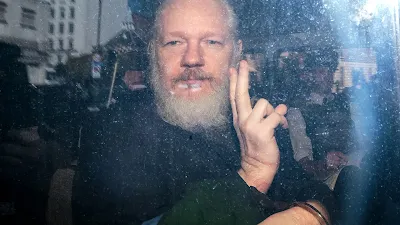Over 30 years or so wandering though charity shops and bookshops I've been drawn to editions of the
Penguin Modern Poets, picking up the odd one here and there, they've long been treasured and have been a huge influence on me. Some have been easy to find, but others have been elusive and hard to find, I didn't actively seek them out, just waited for them to appear before me but am pleased to say that this week I have finally completed the set, wonders of wonders ..
When the
Penguin Modern Poets series was launched in 1962, it's goal was to introduce conpemporary poetry to a much wider
audience than had previously been the case. Prior to their release,
verse was often published in large and expensive, rather off-putting
volumes not readily available to less affluent readers. The Penguins,
however were slim,
inexpensive and therefore readily available to all; as well as being
much less intimidating to look at, with beautiful colourful covers, with Alan Spain, Roger Mayne and others creating a distinctive look for them, giving each one it's own collectable identity.
Each anthology covers three poets, and a total of eighty one writers containing a large proportion of the most important names in British and American poetry, starting with Lawrence Durrell, Elizabeth Jennings, R. S. Thomas and ending with John Ormond, Emyr Humphreys and John Tripp, were showcased in the series's twenty-seven book run. Each book was numbered except for one title (the 10th one),
The Mersey Sound, which received a full name. They contained no biographical material or critical apparatus and simply encouraged
readers to sample widely and deeply and to compare the merits of the
poetries on display. taking in every school of poetry.The series
promoted loyalty to modern poetry in general, and of course loyalty to
the publisher that championed it.
The anthologies became very popular, the tenth collection,
The Mersey Sound included the works of Liverpool poets Roger McGough, Brian Patten, and Adrian Henri and went on to become one of the best selling poetry collections of all time.
I have personal favourites , the Corso, Ferlinghetti, Ginsberg and the
Bukowski, Lamantia, and Norse are particularlywell thumbed, and the Penguins have introduced me to
the distictive work of the late Lee Harwood, Kenneth Rextroth, Adrian Mitchell and B.S Johnson whose poetry since have truly appreciated .I must say however
that each individual title though stand on their own merit, I love
them.Ok darn guess that makes me a materialist, I like wine too but
simply adore turning a page, and I return to these Penguins time and
time again.
Astonishingly all mine are still in rather good nick, since so many of these Penguin’s had
glued spines that exploded into dust, have had to replace a few here and there, since former acquaintnces with sticky hands have lifted them, can't really say I blame them, but rather careful nowadays who I let through the door. Though I confess i'm a bit of a hoarder, friends have been free to borrow if asked, , I'm really not that possessive, though.
They were followed by a second series of 13 new "Penguin Modern Poets" in
the 1990s, and yet another series had its debut in 2016, and has now
reached its seventh volume. I only have one of these, a collection that includes the poetry of one of my favourite writers Iain Sinclair. These collection are no doubt equally worthy, but they somehow lack the excitement of the original series.
Anyway all power to poetry and the poets that create them.
Here’s a list of the books and poets:
1. Lawrence Durrell, Elizabeth Jennings, R. S. Thomas
2. Kingsley Amis, Dom Moraes, Peter Porter
3. George Barker, Martin Bell, Charles Causley
4. David Holbrook, Christopher Middleton, David Wevill
5. Gregory Corso, Lawrence Ferlinghetti, Allen Ginsberg
6. George MacBeth, Edward Lucie-Smith, Jack Clemo
7. Richard Murphy, Jon Silkin, Nathaniel Tarn
8. Edwin Brock, Geoffrey Hill, Stevie Smith
9. Denise Levertov, Kenneth Rexroth, William Carlos Williams
10. Adrian Henri, Roger McGough, Brian Patten (entitled: The Mersey Sound)
11. D. M. Black, Peter Redgrove, D. M. Thomas
12. Alan Jackson, Jeff Nuttall, William Wantling
13. Charles Bukowski, Philip Lamantia, Harold Norse
14. Alan Brownjohn, Michael Hamburger, Charles Tomlinson
15. Alan Bold, Edward Brathwaite, Edwin Morgan
16. Jack Beeching, Harry Guest, Matthew Mead
17. W. S. Graham, Kathleen Raine, David Gascoyne
18. A. Alvarez, Roy Fuller, Anthony Thwaite
19. John Ashbery, Lee Harwood, Tom Raworth
20. John Heath-Stubbs, F. T. Prince, Stephen Spender
21. George Mackay Brown, Norman MacCaig, Iain Crichton Smith
22. John Fuller, Peter Levi, Adrian Mitchell
23. Geoffrey Grigson, Edwin Muir, Adrian Stokes
24. Kenward Elmslie, Kenneth Koch, James Schuyler
25. Gavin Ewart, Zulfikar Ghose, B. S. Johnson
26. Dannie Abse, D.J. Enright, Michael Longley
27. John Ormond, Emyr Humphreys, John Tripp
























